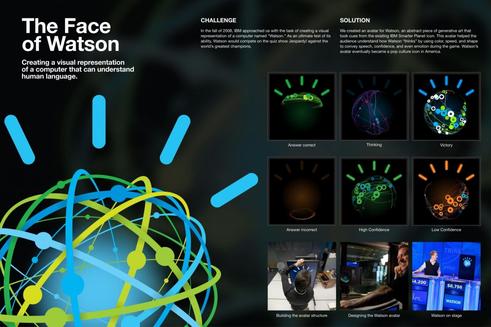 What Watson is capable of, including besting Jeopardy champion Ken Jennings.
What Watson is capable of, including besting Jeopardy champion Ken Jennings. "One day, when Marco and I were playing against two computer opponents, we forced one of the AI cycles to trap itself between its own walls and the bottom game border. Sensing an impending crash, it fired a missile, just like it always did whenever it was trapped. But this time was different – instead of firing at another trail, it fired at the game border, which looked like any other light cycle trail as far as the computer was concerned. The missile impacted with the border, leaving a cycle-sized hole, and the computer promptly took the exit and left the main playing field. Puzzled, we watched as the cycle drove through the scoring display at the bottom of the screen. It easily avoided the score digits and then drove off the screen altogether. Shortly after, the system crashed. Our minds reeled as we tried to understand what we had just seen. The computer had found a way to get out of the game. When a cycle left the game screen, it escaped into computer memory – just like in the movie."
Of course, there is the chance that Wellman and Marco could have discovered a glitch in the system, but it's a chilling reminder of a major scene from the film.
The sequel, Tron: Legacy (2010), takes this intelligence and sentience in programs even further. In that film, it was revealed that programs could leave the digital world and come into our world as normal people. Even this concept of bringing the digital world to our world is something that our non-fictional scientists have attempted to replicate, as seen in advanced A.I. programs such as IBM's Watson, the upcoming Viv being developed by the makers of Siri, and the conversational Philip K. Dick android are prominent examples of scientists bringing a computer consciousness into the world of human consciousness.
The experience of being immersed in the game, a concept played with in TRON, is something that the video game industry has been trying to perfect in recent times. In TRON, Kevin Flynn gets transported by the advanced A.I. running the Grid, the Master Control Program, and participates in the death-defying games that the programs are forced to play. Virtual reality devices can replicate this sense of being in the video game experience. The Oculus Rift, for instance, immerses the player by utilizing a three-dimensional, binocular device that moves the player's character as the player moves their head in real-time. There are even extra peripherals that use the player's hands and feet for an even deeper, immersive experience.
Wellman, Daniel. (2008). Real Life Tron on an Apple IIgs. Stay on Target. Retrieved from http://blog.danielwellman.com/2008/10/real-life-tron-on-an-apple-iigs.html

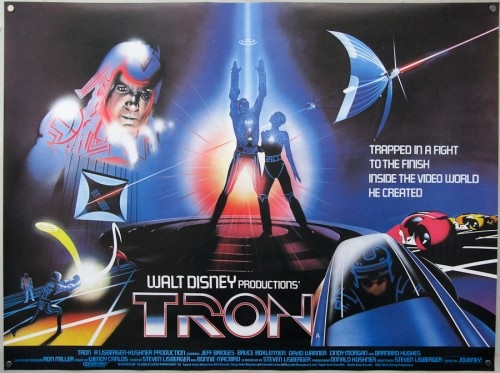

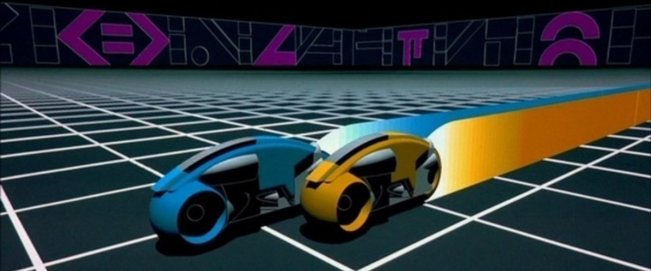
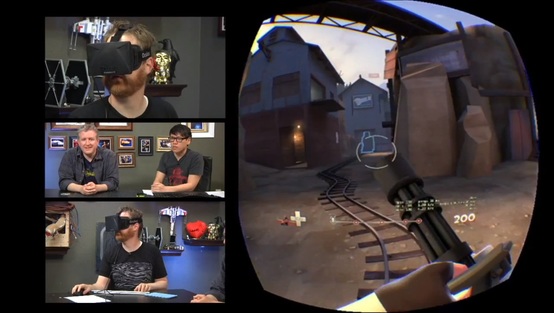
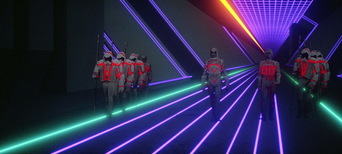

 RSS Feed
RSS Feed
